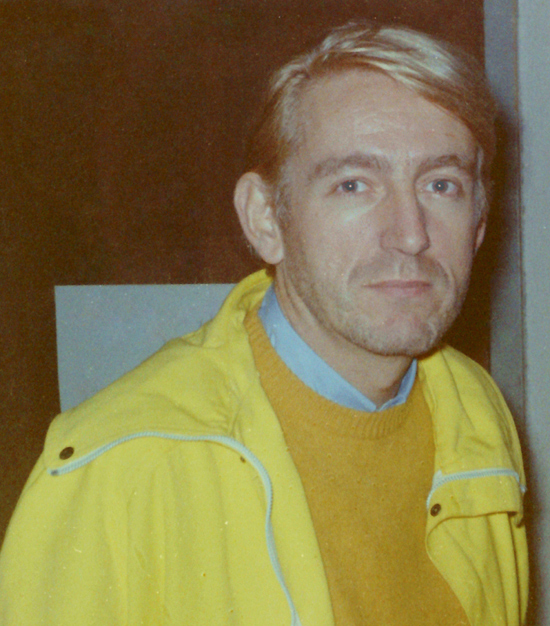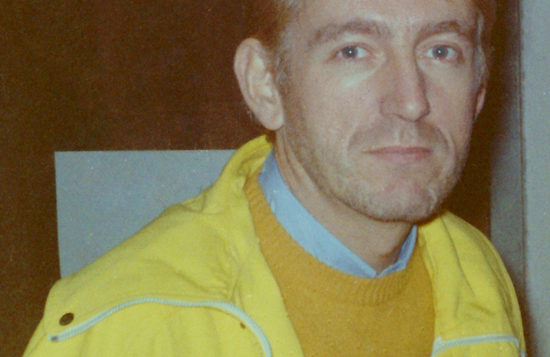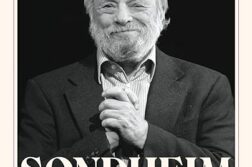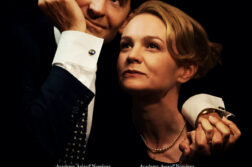IN THE EARLY 1970s, Rod McKuen’s words, music and image were as inescapable as smiley buttons, sideburns, and Richard Nixon. As a songwriter, he scored international hits with tunes like “Jean,” “If You Go Away,” and “Seasons in the Sun,” but he also composed a large number of movie scores and classical pieces. As a poet, he broke sales records with books like Stanyan Street & Other Sorrows and Listen to the Warm. McKuen wrote about love and loneliness (especially the latter) in plain language that earned him both a vast readership and the disdain of literary critics and the hip cognoscenti. What few people know about Rod McKuen is that he was an early gay activist, a member of the Mattachine Society, and a visionary on issues of sexual fluidity and transcending labels.
For all the supposed confessional honesty of his poetry, McKuen concealed and distorted much about himself, including his sexuality. At times in his long career he was remarkably frank about his attraction to men. He was an early crusader for gay rights and a consistent voice for tolerance and compassion. “It’s not who you love or how you love but that you love” may be his most famous epigram. It is also true that McKuen refused to accept any label to describe his identity and maintained fictions about relations with women and his imaginary children. In researching his life for his first full-length biography, I found his sense of self to be complicated and conflicted, a work of creation by a gifted but damaged man determined to rise in a hostile world.
 Born in a home for unwed mothers in 1933, McKuen spent his childhood in rural Far West labor camps during the Great Depression. He repeatedly ran away from home to escape physical and sexual abuse, ending up in a brutal reform school, where he was befriended by an older boy who became his mentor and lover. By his late teens, he found work as a cowboy and lumberjack while hustling on the side. McKuen eventually rejoined his mother in Oakland, California, and landed a job as a radio show host on a local station in 1950. At nineteen, he became known in the Bay Area as the Lonesome Boy, a sweet-talking charmer brightening the nights of his fellow lovelorn romantics.
Born in a home for unwed mothers in 1933, McKuen spent his childhood in rural Far West labor camps during the Great Depression. He repeatedly ran away from home to escape physical and sexual abuse, ending up in a brutal reform school, where he was befriended by an older boy who became his mentor and lover. By his late teens, he found work as a cowboy and lumberjack while hustling on the side. McKuen eventually rejoined his mother in Oakland, California, and landed a job as a radio show host on a local station in 1950. At nineteen, he became known in the Bay Area as the Lonesome Boy, a sweet-talking charmer brightening the nights of his fellow lovelorn romantics.
At the same time, McKuen became active in a local chapter of the Mattachine Society, the first gay rights organization in the U.S. Founded by activist Harry Hay and others, the organization campaigned for better treatment of homosexuals at a time when “sexual misfits” were under constant risk of arrest, physical violence, and loss of employment. It took real courage for an ambitious teenage entertainer to join such a group. His enthusiasm was noted in the group’s minutes, though his behavior caused concern at a meeting in Los Angeles. “Rod McKuen set the whole thing on fire,” one fellow member recalled. “He was gobbled up by a group of people who thought he was just a honey of a guy. … He had gotten into a twosome from a triad that someone was being cut out of and was threatening suicide.”
McKuen’s involvement in the Mattachine Society ended when he was drafted in October 1953. When he returned to the U.S. two years later, he avoided activism in favor of resuming his show biz career, first as a San Francisco nightclub singer, then as a contract player with Universal Pictures in L.A. Though never part of manager Henry Willson’s beefcake stable of male matinee idols, he did develop a lasting connection with its most famous alumnus, Rock Hudson. Cultivating a James Dean-like look, Rod never broke out of B-actor status and enjoyed only modest success as a recording artist.
Moving to New York in 1959, McKuen eked out a bare existence by taking occasional TV gigs, selling his blood, and hustling both male and female customers. He managed to release a series of albums, most notably In Search of Eros, a poetic invocation of furtive sexual encounters and rueful mornings-after. It was semi-hot stuff for the era, though it mostly went unnoticed. Meanwhile, McKuen tried to break into the teen dance market and left his voice permanently scarred from bellowing out rock tunes on a cross-country tour. Returning to L.A., he discreetly shared a life with partner Edward Habib while plotting how to break into the big time after a decade of trying.
McKuen’s turning point coincided with 1967’s Summer of Love, when hippies and other nonconformists took their rebellion against conventional norms into the streets. His stance as a melancholy nonbinary romantic placed him on the more conservative end of the counterculture. It was his ability to connect with the heartaches and longings of countless “ordinary” people that put him in sync with the moment. With poems like “A Cat Named Sloopy” (an account of losing a beloved pet), he quickly ascended to the heights of celebrity and millionaire status.
As his fame grew, McKuen left the closet door to his private life increasingly ajar. In interviews, he acknowledged affairs with both sexes; on his recordings, he would avoid gender references in his love songs. He returned to activism in 1977 when he publicly condemned Anita Bryant’s campaign against LGBT rights in Miami. McKuen called the former Miss America and orange juice spokesmodel “a kind of Ginny Orangeseed spreading bigotry across the land.” He mocked her in his song “Don’t Drink the Orange Juice,” found on his 1977 LP Slide … Easy In, the cover of which featured the muscular arm of gay porn star Bruno digging his fist into a can of Crisco (labeled “Disco”). With gestures like this, McKuen was testing the boundaries of what his audience would accept.
Still, he refused to label himself. “I think the straights, gays and bi’s all do themselves a tremendous disservice by putting themselves into any kind of category,” he said in a 1972 interview. “I don’t believe that there are only three kinds of sexuality any more than there are three kinds of need of any kind.” Five years later, he denied being gay: “I’ve been attracted to men and I’ve been attracted to women. I have a sixteen-year old son.” For all his frankness, McKuen wasn’t above spreading false information about himself. It is almost certain that he had no children. He maintained that his lover Edward Habib was his “brother” long after it was publicly necessary to do so. And yet, in some ways, McKuen’s ideas about sexual fluidity and nonbinary identity were remarkably ahead of their times. Apparently he felt the need to protect himself from the dangers of full disclosure.
The 1980s saw McKuen’s fame declining, though he remained active as a performer at AIDS-related fundraising events and developed a much-visited website. By the time of his death in 2015, his message of all-embracing love and self-acceptance had seemingly been forgotten in a more cynical era. A closer look, though, shows that his ideas about intimacy, personal freedom, and sexual identity have become largely mainstream. McKuen was a public figure of his time. Growing up in a climate of fear and repression, he chose his battles for human dignity carefully.
Though many considered him their friend, McKuen remained a loner all his life, enigmatic at his core. He was both personally guarded and strategically provocative, a gentle revolutionary disguised as a mass appeal writer and entertainer. He remained elusive, even to himself. Highbrow TV host Dick Cavett once dubbed him “the most understood poet in America,” a put-down aimed at McKuen’s transparent verse. And yet, he remains a paradoxical and contradictory figure in pop culture history.
Barry Alfonso is the author of A Voice of the Warm: The Life of Rod McKuen(Backbeat Books, 2019).






